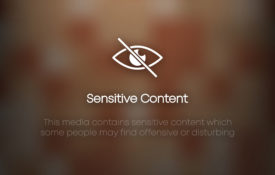-
What Does Watching Violence Do to Your Mind? ‘Nothing Good’: 5 Tips for Maintaining Your Mental Health While Following the News
The conflict in Israel and Gaza has dominated the news cycle for the last week. Turn on the TV or log on to any social media platform and you’ll be confronted with a barrage of horrific headlines. While staying informed is important, consuming an excess of graphic images and videos can negatively affect your mental health. Media exposure to mass violence can fuel a “cycle” where the viewer is highly distressed by the news and that causes them to consume even more of it, according to a recent study. “Nothing good” happens to your brain when you see violent images, says Iliyan Ivanov, a professor of psychiatry at the Icahn School of Medicine at Mount Sinai. ...
-
Erectile Dysfunction Isn’t Just a Blood Flow Issue. Here’s What to Know About ED — And the Best Ways to Treat It.
Blood flow is often blamed when it comes to erectile dysfunction, but a new medical review suggests that treatment plans shouldn’t ignore what’s also happening psychologically. According to a recent article published in the journal Current Directions in Psychological Science, personality traits and mental health issues are among the risk factors associated with ED. However, the authors point out, researchers tend to bypass the psychological aspects of this condition in order to concentrate on the physical causes and their treatments. ...
-
How the Reform-Minded New Editor of Psychology’s Flagship Journal Will Shake Things Up
The trustworthiness of behavioral science has come under renewed scrutiny following recent high-profile retractions for alleged research fraud. ... Given such scandals and broader concerns about the replication crisis, many researchers seeking to reform psychology’s research practices have welcomed the news that a leading proponent of open science is about to take the reins at the field’s most prominent journal, Psychological Science.
-

Cautionary Notes: The Science of Trigger Warnings
Podcast: Are trigger warnings helpful for learning outcomes? Do they shape listeners’ expectations, or do they cause discomfort? APS’s Özge G. Fischer-Baum explores with Dr. Victoria Bridgland of Flinders University.
-
Want to Believe In Yourself? ‘Mattering’ Is Key.
Gordon Flett came across the term “mattering” as a psychology graduate student. Sitting at his desk in 1987, poring over a textbook, “I immediately knew what mattering was,” he said. He remembered visiting his grandmother during the summer as a child and taking trips to the insulation plant where she managed the cafeteria. She hung on his every word, and her co-workers treated him like royalty. Recalling the experience, he could almost taste the Jell-O and chocolate milk. A few years later, the concept landed even closer to home. He was struggling to find research subjects for his master’s thesis and panic was rising.
-

Caution: Content Warnings Do Not Reduce Distress, Study Shows
Advocates for the use of trigger warnings suggest that they can help people avoid or emotionally prepare people for encountering content related to a past trauma. But research indicates the warnings only heighten anticipatory anxiety.

